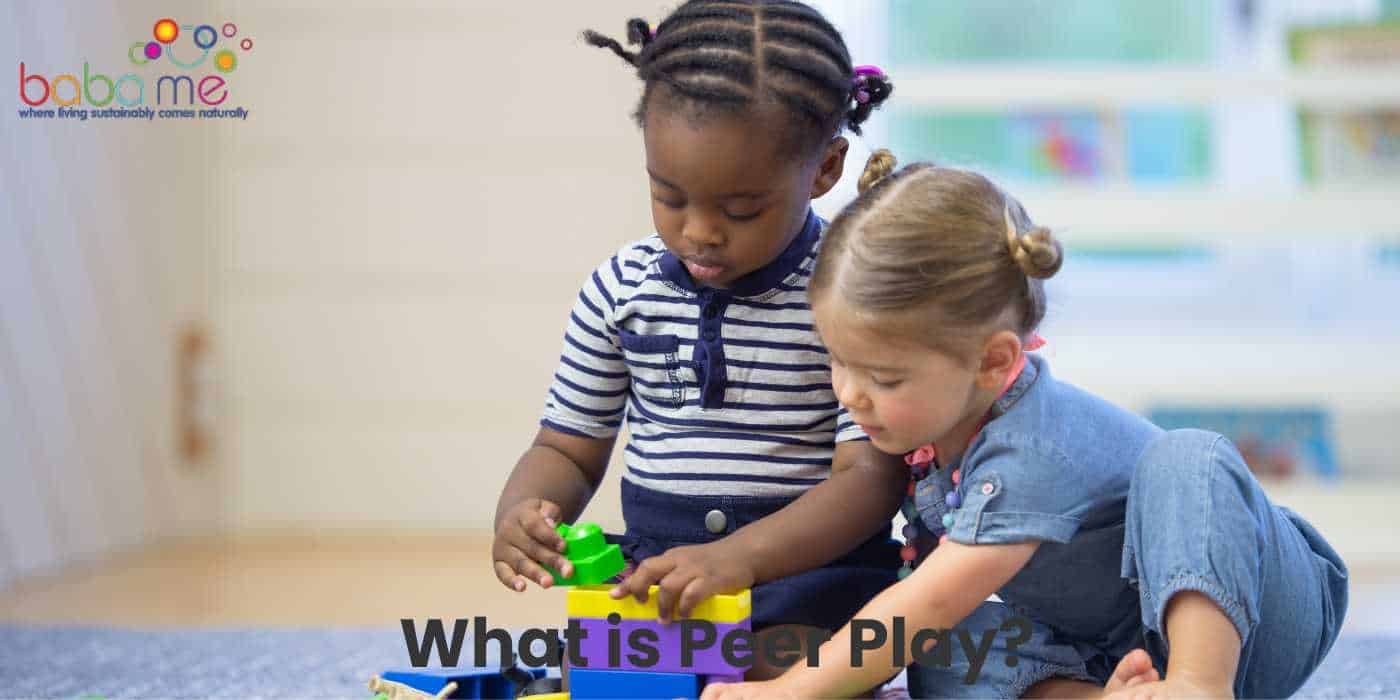The Importance of Peer Play for Children is a fundamental aspect of childhood development, integral to learning social cues, cooperation, and conflict resolution.
In this exploration, we delve into how interactions with peers during playtime are critical for a child’s emotional and cognitive growth. We’ll discuss the role of play in developing empathy, negotiation skills, and the ability to form friendships. From the playground to the classroom, peer play is a dynamic and influential part of growing up. Join us as we uncover the layers of learning that occur when children engage with one another in the world of play.
Peer play is a social interaction among children of similar age. It includes structured and unstructured activities that foster social, emotional, and cognitive development. Whether organized games or imaginative play, kids learn cooperation, negotiation, conflict resolution, and empathy. They enhance cognitive skills understanding rules, problem-solving, and expressing feelings. This essential social structure beyond family helps explore social dynamics and learn vital interpersonal skills.
Key Takeaways on Importance of Peer Play for Children
Peer play is critical for child development, helping children learn to regulate their emotions, develop social skills, and form a sense of identity.
There are many different types of peer play, from parallel play to cooperative play, all of which offer unique benefits for children.
Peers play an important role in child development, helping children make critical connections in their developing brains and promoting positive mental health outcomes later in life.
What is Peer Play?
Peer play is a type of social interaction where children engage in activities with other children of the same or similar age. This form of play is an essential aspect of a child’s social, emotional, and cognitive development. It involves a range of activities that can be structured, like organized games and sports, or unstructured, such as imaginative or pretend play.
Peer play allows children to learn about cooperation, negotiation, conflict resolution, and empathy. They also develop important cognitive skills as they learn to understand and follow rules, solve problems together, and express their thoughts and feelings. It’s a child’s first encounter with a social structure outside of their immediate family, offering them a chance to explore social dynamics and learn essential interpersonal skills.
Role of Play in Childhood
Play is a critical component of childhood development and has numerous benefits for children. Through play, children develop their physical, cognitive, and emotional skills. Physical play, such as running, jumping, and climbing, helps children develop their gross motor skills and coordination. Imaginative play, such as playing dress-up or pretending to be a doctor, helps children develop their creativity and imagination.
Play also provides children with opportunities to learn social skills, such as sharing, taking turns, and cooperating with others. Peer play is especially important in this regard, as it allows children to interact with their peers and learn how to navigate social situations. Peer play also helps children develop relationships and build friendships, which are essential for their emotional development.
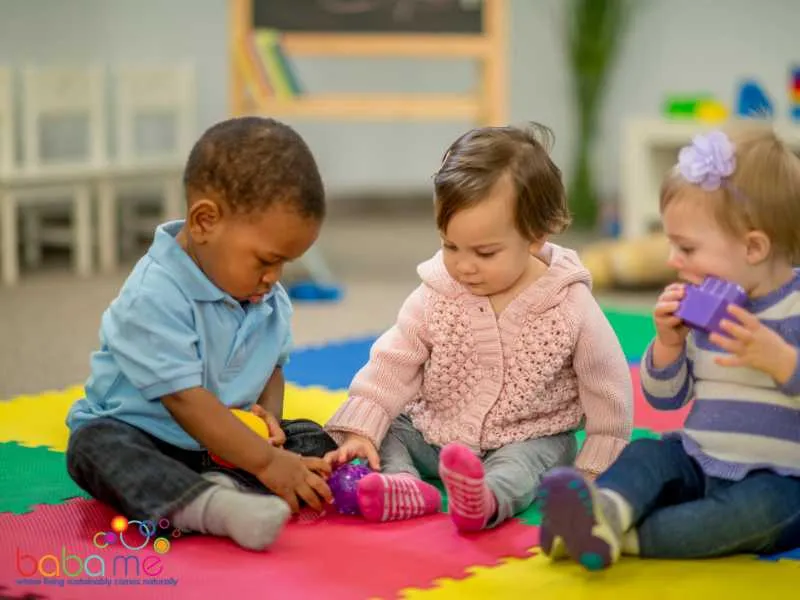
Types of Peer Play
Children engage in different types of peer play as they grow and develop. Understanding these types can help you encourage and facilitate appropriate play for your child. Here are three types of peer play:
Solitary Play
Solitary play is when a child plays alone, without interaction with other children. This type of play is common in younger children, and it allows them to explore their environment and develop their creativity. Children may engage in solitary play with toys, books, or other objects. Encouraging your child to engage in solitary play can help them develop important skills such as problem-solving, imagination, and independence.
Parallel Play
Parallel play is when children play side by side, but do not interact with each other. This type of play is common in toddlers, and it allows them to observe and learn from each other. Children may engage in parallel play with similar toys or activities. Encouraging your child to engage in parallel play can help them develop social skills such as sharing, taking turns, and respecting personal space.
Cooperative Play
Cooperative play is when children play together, interact with each other, and work towards a common goal. This type of play is common in older children, and it allows them to develop teamwork, communication, and problem-solving skills. Children may engage in cooperative play with games, sports, or other group activities. Encouraging your child to engage in cooperative play can help them develop positive relationships with peers and build self-confidence.
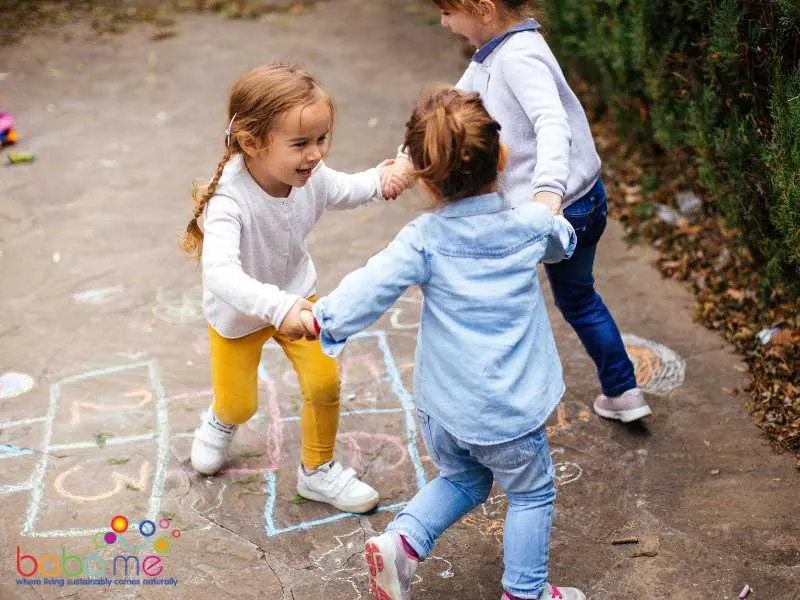
The Role of Peers in Child Development
Peers play a crucial role in the development of children. Interacting with peers helps children learn important skills that are necessary for their cognitive, emotional, and social development. In this section, we will explore the role of peers in child development and how it impacts different aspects of a child’s growth.
Cognitive Development
Peer play can have a significant impact on a child’s cognitive development. When children engage in play with their peers, they learn to solve problems, think critically, and develop their creativity. Peer play also helps children learn important language and communication skills, which are essential for their cognitive development. By interacting with their peers, children learn to express their thoughts and ideas, listen to others, and work collaboratively.
Emotional Development
Peer play is also important for a child’s emotional development. When children play with their peers, they learn to manage their emotions and develop empathy for others. Peer play provides children with an opportunity to learn how to regulate their emotions, express their feelings, and develop a sense of self-awareness. Children who engage in peer play are more likely to develop positive self-esteem and confidence, which are essential for their emotional well-being.
Social Development
Peer play is essential for a child’s social development. Through peer play, children learn to interact with others, develop friendships, and build social skills. Peer play provides children with an opportunity to learn how to share, take turns, and cooperate with others. Children who engage in peer play are more likely to develop positive social skills, such as empathy, kindness, and compassion.
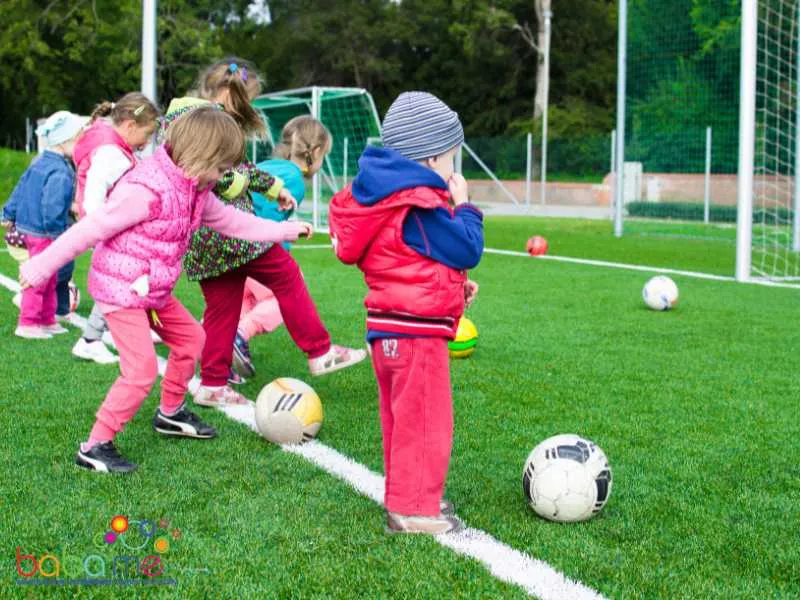
Benefits of Peer Play
Playing with peers is an essential part of childhood development that has numerous benefits for children. Here are some of the key benefits of spoplay:
| Skill Developed Through Peer Play | Explanation | Example |
|---|---|---|
| Social Skills | Children learn to communicate, share, cooperate, and negotiate with others | Kids playing a board game learn to wait for their turn, cooperate, and negotiate rules. |
| Emotional Understanding | Peer play helps children understand their own and others’ emotions | During a pretend tea party, children may act out various emotions and respond to their peers’ pretend emotions. |
| Problem-solving Skills | Children learn to resolve conflicts and navigate social situations | In a soccer game, children have to figure out how to get the ball into the goal while working as a team. |
| Language Skills | Kids enhance their vocabulary and communication skills | Kids using imaginative play can create complex narratives and dialogues, expanding their language use. |
| Cognitive Skills | Peer play often involves rule-making, planning, and memory, all of which build cognitive skills | In a game of ‘hide and seek’, children have to remember hiding spots and plan where they will hide next time. |
| Physical Development | Many peer play activities involve movement, helping children develop motor skills | Games like tag or hopscotch help develop gross motor skills. |
Enhancing Social Skills
Playing with other children helps your child develop social skills that are necessary for living and working with others. Peer play provides children with an opportunity to learn how to communicate, cooperate, and negotiate with others. Through peer play, children learn how to share, take turns, and resolve conflicts in a positive way. These social skills are essential for building healthy relationships with others throughout life.
Promoting Sharing and Cooperation
Peer play also promotes sharing and cooperation. When children play together, they learn how to share toys and take turns, which helps them develop a sense of empathy and consideration for others. Through peer play, children also learn how to work together towards a common goal, which helps them develop teamwork and cooperation skills.
Fostering Imagination and Creativity
Peer play encourages imagination and creativity. When children play with others, they are exposed to different perspectives and ideas, which can inspire them to think creatively and come up with new games and activities. Peer play also allows children to explore their imaginations and develop their own unique play styles and interests.
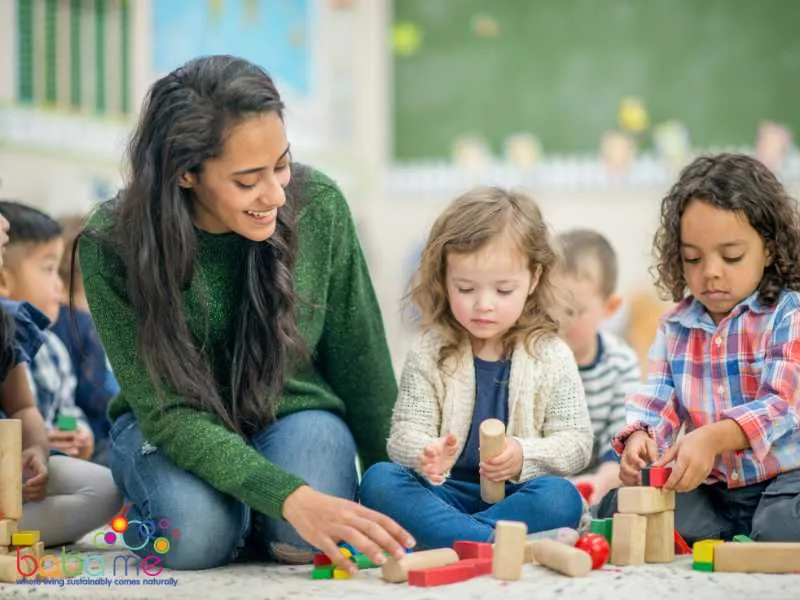
Peer Play and Education
As a parent or educator, you know that children learn best through play. Peer play is an especially important aspect of childhood development, as it helps children build social skills, problem-solving abilities, and cognitive function. In this section, we’ll explore the important role that peer play plays in education, particularly in preschool and early elementary school.
Play in Preschool
Preschool is a critical time for children to develop their social skills and learn through play. Peer play is an essential component of this learning process. When children engage in play with their peers, they learn to take turns, share, and work together to achieve a common goal. This type of play helps children develop important social skills that will serve them well throughout their lives.
In preschool, teachers can facilitate peer play by providing a safe and structured environment for children to engage in play. For example, teachers can set up play stations that encourage children to work together, such as a block-building station or a dramatic play area. By providing opportunities for peer play, teachers can help children develop important social and emotional skills that will be essential for success in school and beyond.
Peer Interaction and Learning
Peer interaction is also essential for learning. When children work together in groups, they can learn from one another and build on each other’s ideas. This type of collaborative learning is especially important in early elementary school, where children are just beginning to develop their cognitive skills.
Teachers can encourage peer interaction by assigning group projects and activities that require children to work together. For example, a science project that requires children to work in groups to design and build a structure can help children develop problem-solving skills, teamwork, and communication skills. By encouraging peer interaction, teachers can help children build important cognitive skills that will be essential for success in school and beyond.
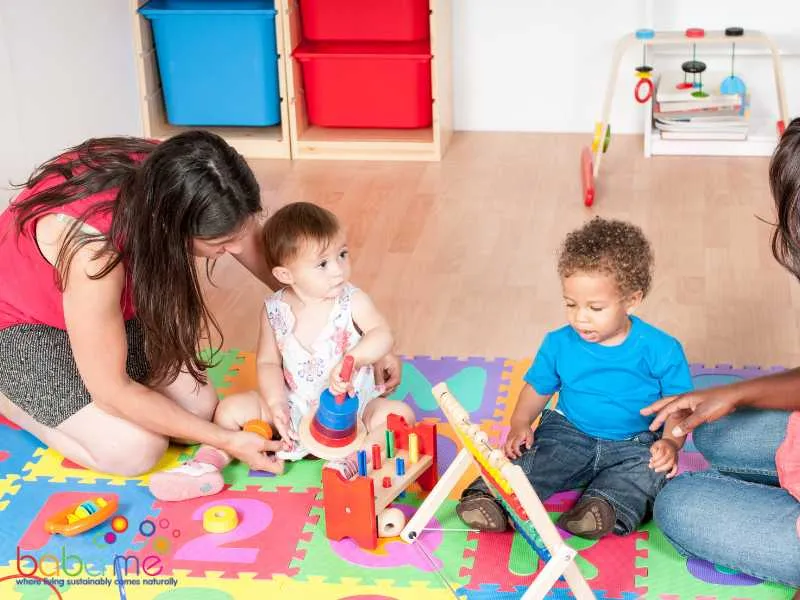
How to Encourage Peer Play
Encouraging peer play is essential in fostering the social competence and overall mental health of children. This form of interactive engagement is not only beneficial in developing a child’s ability to interact and cooperate with others but also instrumental in cultivating their perspective taking, self-regulation, and language ability.
From the early days of preschool to the formative period of early adolescence, peer play opportunities present themselves as the platform upon which children engage and experiment with social cues, roles, and norms. Engaging in such activities fosters a sense of belonging in children and, over time, forms the foundation for successful peer play in middle childhood.
Pretend play and free play, in particular, play crucial roles in children’s engagement with their peers. During pretend play, children act out scenarios and roles that facilitate the development of perspective-taking and social understanding. The spontaneous and unstructured nature of free play, on the other hand, allows children to navigate social situations, resolve conflicts, and refine their social and physical skills.
Mental health services often employ play therapy as a tool to address mental health issues in children. Through play, children can express their thoughts and feelings in a less threatening and more enjoyable manner. Peer play interactions, in this context, serve as windows into the children’s social and emotional landscapes, offering invaluable insights for therapeutic intervention.
However, not all children have equal access to the developmental benefits of peer play. Research shows that socio-economic status, among other factors, influences children’s level of participation in peer play. For instance, children from low-income families or minority children often face limited peer play opportunities, which can affect their social competence and academic performance.
This points to the pressing need for further research and intervention strategies aimed at ensuring all children have access to peer play, irrespective of their socio-economic status or cultural background. As present study and previous research suggest, the social context within which peer play occurs plays a key role in shaping children’s engagement and the associated outcomes. Creating inclusive and supportive environments where children of similar ages and developmental stages can engage in play with peers is therefore vital.
Understanding and addressing the factors that might disrupt peer play is equally important. For instance, children with social difficulties or those exhibiting social withdrawal might require additional support to participate and benefit from peer play interactions.
FAQs on the Importance of Peer Play
Why is peer play important?
Peer play is vital as it helps children develop various skills, such as social interaction, problem-solving, and emotional understanding. It encourages children to learn about cooperation, negotiation, and conflict resolution.
Why is peer play important for children?
For children, peer play provides the ideal setting to learn social norms, practice empathy, and express their thoughts and feelings. It’s an environment where they can experiment, explore different roles, and better understand the world around them. It’s also a time when they develop essential language and communication skills.
What is an example of associative play?
Associative play is a type of play where children engage in similar activities, share materials, and interact with one another, but there’s little organization or cooperation towards a common goal. An example would be a group of children playing in a sandbox. Each child might be building their own sandcastle but would be open to exchanging toys, tools, and comments about what they’re doing.
What is peers play?
Peer play refers to the play that occurs between children of the same or similar age group. It can involve various types of activities, from structured games to imaginative role-play. During peer play, children learn to share, cooperate, negotiate, resolve conflicts, and develop empathy.
Peers’ social skills for children refer to the abilities necessary to interact effectively with other children of their age. These skills include sharing, cooperating, negotiating, understanding others’ perspectives, managing emotions, and resolving conflicts.
What are peer interactions and play in early childhood?
Peer interactions and play in early childhood are vital aspects of a child’s development. These interactions involve children playing and communicating with other children of the same age group. They provide opportunities for children to practice social skills, understand others’ perspectives, develop empathy, express emotions, and learn to resolve conflicts. These interactions often occur during play, which is a natural and enjoyable way for children to learn.
Peer play and social play are related, but they are not exactly the same.
Peer play refers specifically to the interactions that occur between children of the same age group or developmental level. This play allows children to explore social roles, learn to share, and understand how to communicate and cooperate with others.
On the other hand, social play is a broader term that includes any play involving social interaction. This can be between peers (peer play), between children of different ages, or between children and adults. Social play is vital for developing social skills, language skills, and emotional understanding.
So, while all peer play is a form of social play, not all social play is peer play. It’s the age and developmental level of the play participants that distinguishes peer play from other forms of social play.

